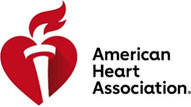
In a cardiac emergency, Hands-Only CPR is an effective way to act fast:
1. Call 911
2. Push hard and fast in the center of the chest until first responders or an AED arrive.
The American Heart Association has set a bold goal: to double the survival rate from cardiac arrest by 2030 by creating a Nation of Lifesavers—where every household is prepared to act. To reach that goal, more people must be ready to respond—by calling 911, delivering CPR, and using an AED as soon as it is available.
To make the AED more readily available, some North Texas fire departments and community partners are transforming neighborhoods into “4 Minute Communities”—places where trained responders and AEDs can reach a cardiac arrest victim within four minutes.
Since 1999, Carrollton Fire Rescue has been a beacon of CPR education in North Texas. Its American Heart Association Training Center has trained over 28,000 people since 2022, including thousands of students through a partnership with Carrollton-Farmers Branch ISD. All 5th, 8th, and 12th graders receive CPR and AED training—exceeding the State of Texas’ CPR graduation requirements.
In addition to education, the department manages more than 160 AEDs across city buildings, fleet vehicles, and public parks. In 2024, Carrollton became one of the first communities in the country—and the first in Texas—to implement a new community-based AED response model. The program, supported by many local organizations including the American Heart Association and Metrocrest Hospital Authority, aims to place 200 connected AEDs in the hands of trained local volunteers who can be alerted by 911 dispatchers and guided to nearby cardiac emergencies. Carrollton community members interested in learning more or signing up can visit the city’s website.
“Our approach helps close the critical gap between the onset of cardiac arrest and the arrival of professional medical responders,” said Caleb Rosier, Public Access CPR Program Director for Carrollton Fire Rescue. “As part of this effort, we’re equipping over 200 residents to participate in our community AED program, the ‘4 Minute Community’.”
In the heart of Collin County, the city of McKinney is also actively working toward becoming a “4 Minute Community.” The McKinney Fire Department has already deployed over 150 AEDs across public spaces including libraries, recreation centers, and city buildings. In addition to expanding AED access, the department is building a collaborative effort with McKinney Independent School District to strengthen CPR education and awareness among students. With support from the City of McKinney, plans are underway to implement a similar community-based AED response model. These efforts reflect a growing commitment to ensuring more residents are prepared to respond in a cardiac emergency—and that lifesaving tools are within reach when time matters.
“The American Heart Association is proud to celebrate the growing momentum across North Texas communities working to build a Nation of Lifesavers and we see what the cities of Carrollton and McKinney are doing as part of a broader regional movement to ensure North Texas communities are equipped to respond when every second counts,” says Jenny Eyer, Vice President of Community Impact for the American Heart Association in North Texas. “As more people are educated about Hands-Only CPR and more neighborhoods gain faster access to AEDs, lives are being saved.”
Preparing the places where people live, work, play, and pray for cardiac emergencies requires a community-wide effort. Organizations interested in getting involved can contact the American Heart Association’s North Texas Community Impact team at Rosa.Leal@heart.org to learn more. Together, we can create a Nation of Lifesavers.
About the American Heart Association
The American Heart Association is a relentless force for a world of longer, healthier lives. Dedicated to ensuring equitable health in all communities, the organization has been a leading source of health information for more than one hundred years. Supported by more than 35 million volunteers globally, we fund groundbreaking research, advocate for the public’s health, and provide critical resources to save and improve lives affected by cardiovascular disease and stroke. By driving breakthroughs and implementing proven solutions in science, policy, and care, we work tirelessly to advance health and transform lives every day. Connect with us on heart.org, Facebook, X or by calling 1-800-AHA-USA1.

